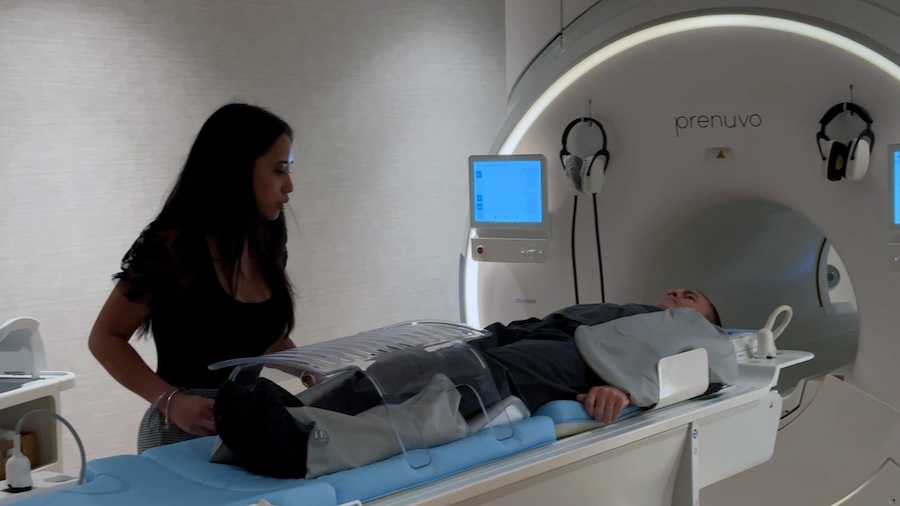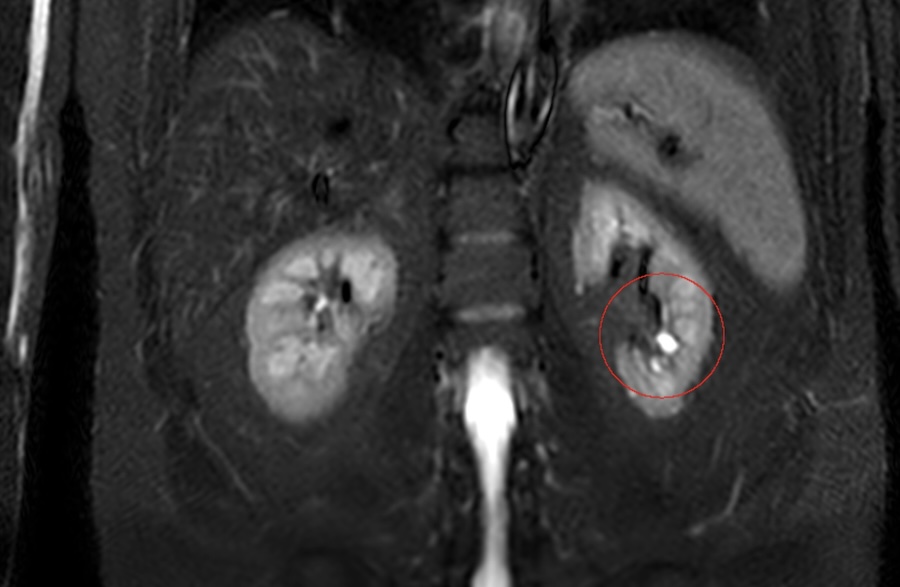EastIdahoNews.com reporter prepares for a whole-body MRI scan at a Prenuvo clinic in Scottsdale, Arizona. | Jordan Wood, EastIdahoNews.com
SCOTTSDALE, Arizona — My dad had a widowmaker heart attack in his 50s.
The BRCA breast cancer gene runs in my mom’s family.
Fortunately, my father survived his heart attack, and my mother hasn’t been diagnosed with cancer, but doctors have told me to keep an eye on my health, given my genes.
I turned 44 in April, and over the past year I’ve been making changes: losing weight, exercising regularly, eating smarter (and less), trying to manage stress (not easy when you work in news), and making sure I’m in bed by 10 p.m. every night.
A close friend — also in his mid-40s — recently had his own wake-up call. His dad died suddenly of a stroke, and not long after, his mom was diagnosed with dementia. It shook him. He started taking better care of himself and signed up for a whole-body MRI.
The full-body scans are on the rise – attracting celebrity promoters, tech mogul investors, and waiting lists of people hoping to identify life-threatening conditions.
My friend told me about Prenuvo, a company founded in 2018 that offers radiation-free MRI scans designed to detect hundreds of conditions and cancers. He said the process was simple: he booked the scan, spent an hour at the clinic, and within days, results were waiting in his inbox. His experience got me curious.
Prenuvo doesn’t have any clinics in Idaho, so when I found myself in Phoenix recently, I decided to try it too.
The process was simple. I booked an appointment online, filled out a detailed health history, and fasted for a few hours before the appointment.
I’d never had an MRI before, and to be honest, I was somewhat nervous. I get claustrophobic, and as the table slid me into the machine, I felt my chest tighten. However, Prenuvo has a nice solution: patients can watch Netflix during the scan using special glasses and headphones. It was surprisingly calming — I actually got caught up on a show I’d been meaning to watch, and it helped the time go quickly.

The scan itself took about an hour. Between the machine’s beeps, thumps, and taps, the technician guided me through everything via headset, even reminding me when to hold my breath. I always had a “panic button” in my hand if I needed to get out, which helped me relax.
When it was over, I changed back into my clothes, grabbed a few snacks waiting outside the room, and went on with my day. Three days later, the results were ready.
I logged into the Prenuvo site and scheduled a 40-minute virtual appointment with Dr. Vikash Modi, their Senior Medical Director of Preventive Medicine. He walked me through every detail. The scan picked up a small cyst on my kidney and liver — both benign and nothing to worry about — but otherwise, everything looked good.

Modi made it clear that Prenuvo isn’t a replacement for certain screenings, like colonoscopies, and it can’t detect calcium deposits in the heart’s arteries and veins.
Some physicians question whether expensive full-body MRIs are necessary for people without symptoms, pointing out risks like false positives, unnecessary follow-up tests, and limited data proving the scans extend life. Prenuvo has also faced legal challenges in the past, such as a lawsuit claiming a radiologist missed signs of a stroke on a scan.
That being said, I now feel more aware of my health — and more motivated to keep making good choices.
Prevuno has clinics across the country. You can find locations here. A comprehensive whole-body scan costs around $2,499, but you can get $300 off by booking here. Prenuvo did not compensate me or EastIdahoNews.com for this story, but my MRI was provided without charge.
Watch my experience in the video player above.
=htmlentities(get_the_title())?>%0D%0A%0D%0A=get_permalink()?>%0D%0A%0D%0A=htmlentities(‘For more stories like this one, be sure to visit https://www.eastidahonews.com/ for all of the latest news, community events and more.’)?>&subject=Check%20out%20this%20story%20from%20EastIdahoNews” class=”fa-stack jDialog”>


